Earlier in the year, we talked about things to consider before signing your commercial lease. However, we didn’t dive into understanding your lease or cover the common mistakes business owners make before signing their lease. As you read this, keep in mind that a lease between a landlord and tenant can supersede certain sections of Nevada law to the extent of any conflict. Since a lease can have an enormous influence on your business, we thought it would be best to follow up on this topic. In this blog, we’ll discuss the key points you’ll want to keep track of as you review your commercial lease.
Start with the basics and understand the Term, Use, and Rental information on the agreement. The Term of the lease has to be a period of time you are comfortable with and can calculate into your budget and plan for your business. You should also consider including any renewal terms and options if needed. This is important if you require financing as your lease will most likely have to match the term of your loan. The Use of the space is often overlooked but should clearly be defined for your business. Landlords tend to be more restrictive than welcoming when it comes to these terms. Think about every possible scenario you may use your space for in case your business expands its service offerings. An Exclusive Use term may come in handy as well, to ensure no competitors are accepted in the same area after your lease is in effect. The Rental information is simple enough as it will include the rent and payable installments. Make sure everything is what both parties agreed upon or stated in the Letter of Intent, such as the security deposit amount.
Damages, maintenance, and operating expenses are major points to discuss and, oftentimes, negotiate with your landlord. Damages can be a whole separate talking point. The main thing you’ll want to clarify is who is responsible for what – when major damages occur. These damages can be similar to what you’ll find are covered by your insurance. (This is assuming you have adequate insurance.) During this repair period, you’ll want to make sure that the terms of the rent are clearly stated as well. You’ll also want to negotiate the right to terminate the lease if there is significant damage to the property. Maintenance is another tricky part about your lease agreement. In Nevada, it’s not uncommon for landlords to pin HVAC repairs and maintenance on tenants. It’s important to make sure these systems, and similar ones, are addressed and that the Landlords warrant that the systems are in good working condition at the time the lease is signed. However, these maintenance and repair costs can become expensive very quick. It would be best to negotiate a split in responsibility and costs for maintaining big ticket items. Common Area Maintenance or CAM cost will be a term to get familiar with. As a tenant, you will most likely be responsible for shared areas with other tenants even though they are not directly leased. When it comes to CAM costs, it would be best to request a statement of these costs to ensure that you are not over paying for these services.
Lastly, make sure to understand the Guaranty, Subletting and Default terms of the lease. These are extremely important points on your lease. A guaranty is something that will scare many business owners, especially if you are a small business. A landlord will require a guarantor to be named in case the business fails to meet its obligations. This is normally the owner of the business which means this eliminates the liability protection that a business owner has and puts the financial burden on them as well. Make sure you completely understand the terms of this before signing. Subletting may come into effect if you decide to sell, merge, or acquire a new business and decide that the current space will no longer be tied to your business. Most new businesses don’t have to worry about this term but it should not be overlooked because it can cause a headache if it slows down the transition of your business later on. The hardest part to read on the lease may be the terms of your business defaulting. This is a risk for all businesses out there. If this scenario does happen, your landlord should try to lessen the damage by finding and letting the space quickly after default. Landlords are obligated to do so. It is also possible that you will still be responsible for the space as the landlord isn’t obligated to terminate the lease. So, there are definitely still some things to negotiate here. That being said, you will most likely be responsible for any fees incurred during the period of finding a new tenant. This can range between broker fees to the cost of ads to locate a new tenant.
There are many more terms and conditions to consider when reviewing your commercial lease. It may be daunting for a first-time business owner but it’ll feel much better knowing you understand your lease before an incident occurs. Read your lease agreement thoroughly, we can’t stress this enough. Consider seeking legal counsel in Nevada even after you’ve read your lease. It never hurts to get legal advice when it comes to your business.
